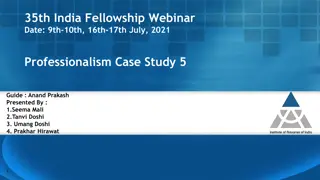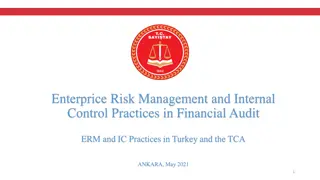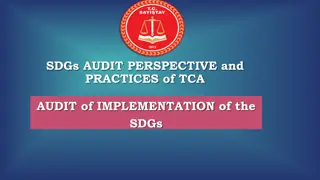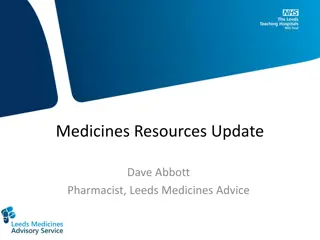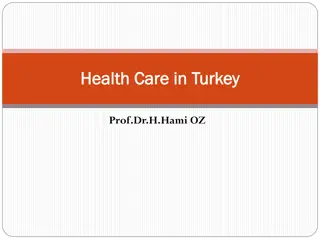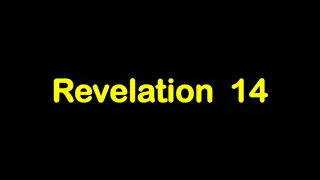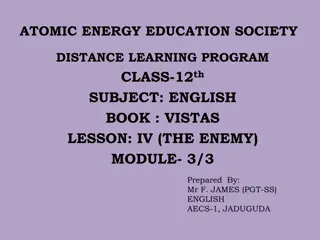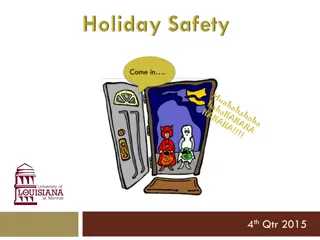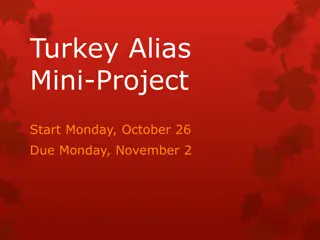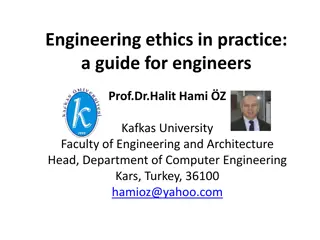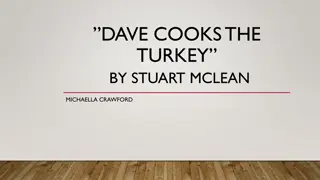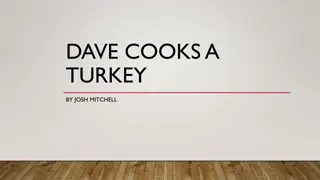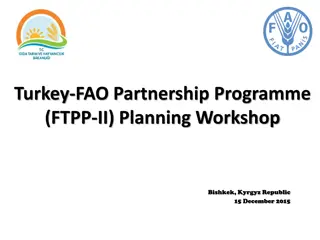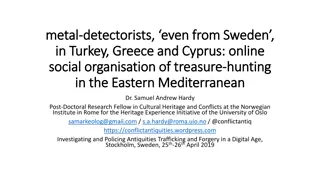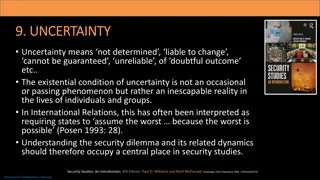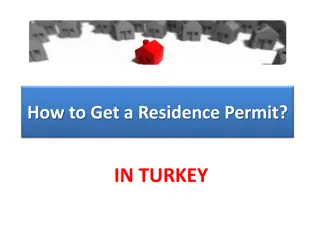Dave's Holiday Turkey Dilemma
Dave, a middle-aged man, faces a hilarious predicament when tasked with cooking a Christmas turkey he forgot to buy. In his attempt to hide his mistake, he navigates between his primal instincts (ID), societal norms (SuperEgo), and rational decision-making (Ego) in a light-hearted narrative by Charlotte Gibson.
Download Presentation

Please find below an Image/Link to download the presentation.
The content on the website is provided AS IS for your information and personal use only. It may not be sold, licensed, or shared on other websites without obtaining consent from the author.If you encounter any issues during the download, it is possible that the publisher has removed the file from their server.
You are allowed to download the files provided on this website for personal or commercial use, subject to the condition that they are used lawfully. All files are the property of their respective owners.
The content on the website is provided AS IS for your information and personal use only. It may not be sold, licensed, or shared on other websites without obtaining consent from the author.
E N D
Presentation Transcript
Dave DaveCooks the theTurkey Cooks By Charlotte Gibson Turkey
Dave Dave Dave was a middle-aged man who lived with his wife and children. One year, Dave s wife asked him to cook the Christmas turkey so she would not have to. He agreed and promptly forgot about it. He had not realized that his wife had also wanted him to buy the turkey until it too late. On Christmas, he had to find a turkey and eventually take it to a hotel to get it cooked. He did this so that his wife would not find out, but in the end, did tell her.
Did you take the turkey out of the freezer? she said. Yes, of course, said Dace. Of course he hadn t . But he wasn t about to admit that (McLean, 10).
ID ID This quote is an example of Dave being controlled by his ID. He knew that he had not taken the turkey out of the freezer, but he did not want to admit that to his wife. This is because he knew that she would be upset at him, so instead, he lied and said that he had taken the turkey out of the freezer. The ID controls one s instincts and the desire to protect oneself. Dave lied because he was being controlled by his ID which was trying to keep him safe.
Ego Ego
He was looking for a twenty-four- hour grocery store. It was either that or wait for the food bank to open, and though he couldn t of anyone in the city more in need of a turkey, the idea that his family might spot him in line made the food bank unthinkable (McLean, 10).
Ego Ego This quote is an example of Dave being controlled by his Ego. He has to please both his Id and SuperEgo. His Id is telling him to go to the foodbank and get a turkey because that will be easy, but his SuperEgo is telling him that he cannot go incase his family sees him and judges him for not getting the turkey sooner. One s Ego has to mediate between one s Id and SuperEgo and find a solution that somewhat pleases both parties.
SuperEgo SuperEgo
And you know where the train is going, Dave? said Morley. Yup, he thought. Off the tracks. Any moment now. What? said Morley. No, said Dave. I don t know where the train s going (McLean, 7).
SuperEgo SuperEgo This quote is an example of Dave being controlled by his SuperEgo. He originally wanted to respond to his wife with a rude comment, but he thought better of it. Instead, he chose to say something that would not upset her. He was being controlled by his SuperEgo because the SuperEgo represets morality and societal expectations. Dave s SuperEgo told him that his original idea was unacceptable.
Conclusion Conclusion Dave was a round and dynamic character who found himself controlled by his Id, Ego, and SuperEgo. He made real and often relatable choices which were decided by his Id, Ego, and SuperEgo. He was fairly balanced in the amountof choices made by his Id, Ego, and SuperEgo; although, he stated out mostly being controlled by his Id. Dave was a character that felt real because of how he made choices, which were controlled by his Id, Ego, and SuperEgo,
Works WorksCited Cited McLean, Stuart. Dave Cooks the Turkey. 2005, https://myriverside.sd43.bc.ca/pbarrington/english-12/novel-unit-identityperseverance/, Accessed 18 Oct. 2021. (Pages 3-20).
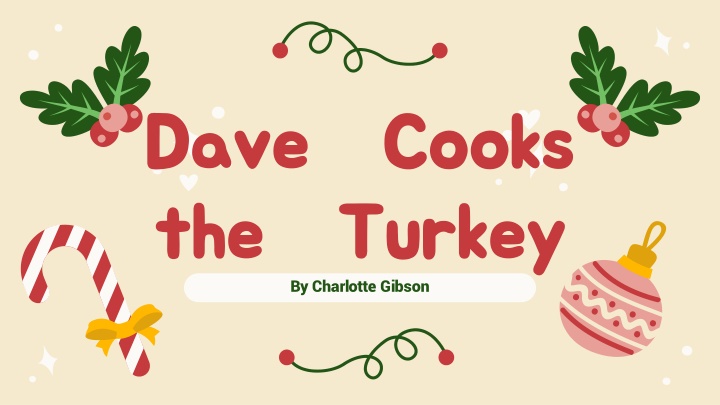

![[✔PDF✔⚡] ✔DOWNLOAD✔ Blank Recipe Book For Holiday Season: My Holiday Recipe](/thumb/68037/pdf-download-blank-recipe-book-for-holiday-season-my-holiday-recipe.jpg)
